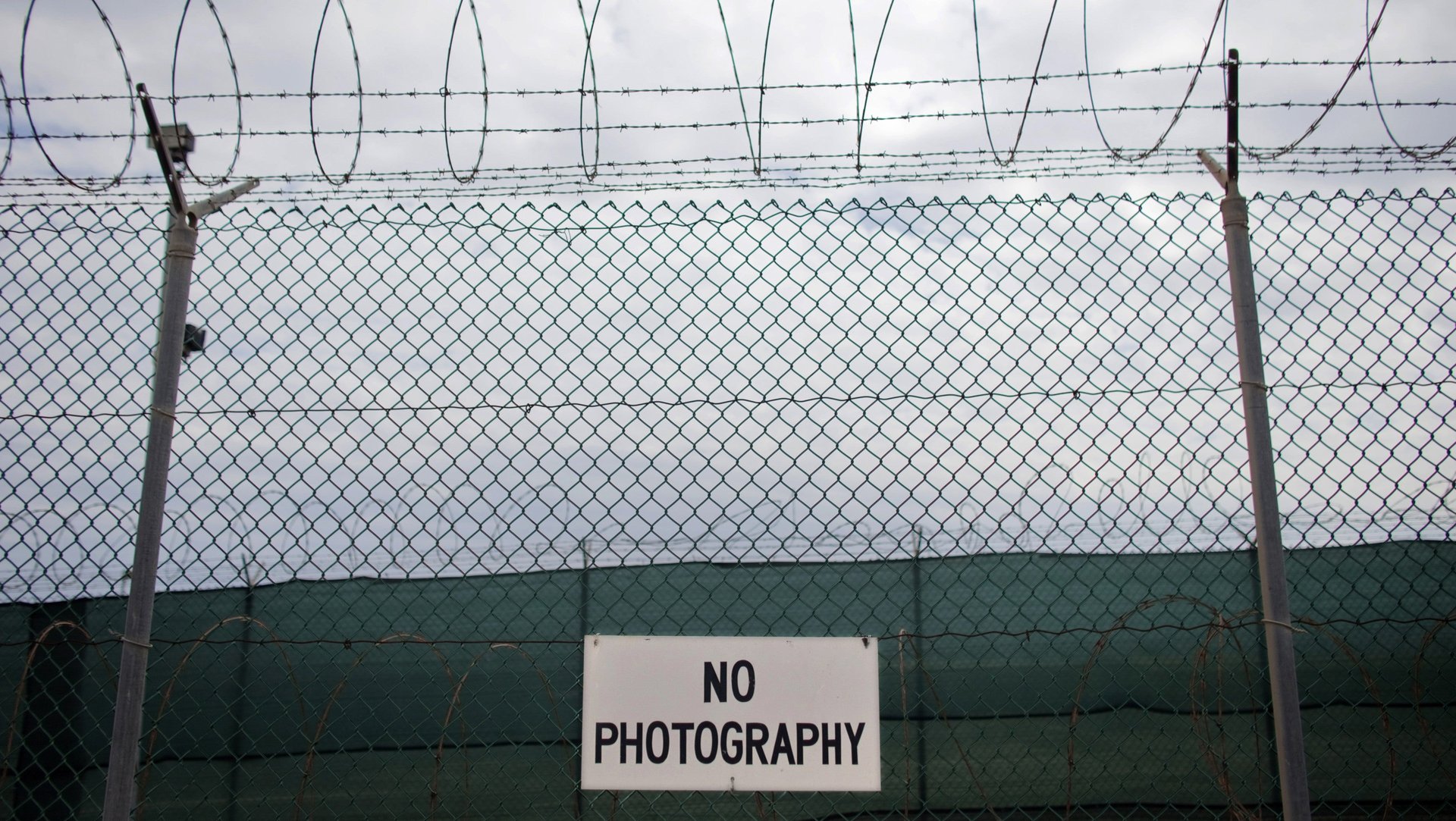Kenya wants to build its own version of Guantanamo
Kenya’s president Uhuru Kenyatta said in a speech on Tuesday (Feb. 16) that his government is thinking about building a prison that will hold those with “violent and extremist” tendencies to limit their ability to spread “poison” to other prisoners.


Kenya’s president Uhuru Kenyatta said in a speech on Tuesday (Feb. 16) that his government is thinking about building a prison that will hold those with “violent and extremist” tendencies to limit their ability to spread “poison” to other prisoners.
“We will establish a new prison to hold violent, extremist offenders,” Kenyatta, speaking at a graduation ceremony for new prison guards, said. “The truth of the matter is that we cannot allow them to spread their poison to vulnerable Kenyans.”
It was unclear who, specifically, Kenyatta was referring to. But the language he used in the speech suggests that he may have been talking about individuals with alleged ties to the Somali militant group Al-Shabaab.
Kenya has been targeted by the al Qaeda-affiliated organization ever since the country sent troops into Somalia in 2011 to help defeat the group and secure the country for the government. Several high profile attacks by the Shabaab, including at a high end mall in Nairobi and a university in the northeast of the country, have killed hundreds of people.
Last June, Kenyatta suggested that the situation is forcing Kenya to think of new ways to combat the threat.
“We must accept that we are faced with a new kind of enemy against whom the conventional methods of fighting crime will not work,” he said. “We have amongst us radicalized youths who appear innocent which makes us believe that they are doing God’s work while they are busy planning evil against other Kenyans in the name of religion.”
At the time Kenyatta indicated that his government was going to work with community and religious leaders to protect against such radicalization. But the decision to potentially build a special prison to detain individuals suspected of extremism could portend a new phase of Kenyatta’s administration’s anti-terrorism efforts. It follows another radical idea, yet to be fully realized, of building a wall along the Kenya-Somalia border the government says will keep out the militants.
Some analysts compare the proposed prison to the controversial US naval base in Cuba’s Guantanamo Bay where the US government has been holding prisoners suspected of terrorism. They say this approach will only work to exacerbate the already difficult relationship the government has with Kenyans of Somali ethnic origin, a community it cannot afford to alienate in its anti-terrorism efforts.
“There is a real risk that this prison for jihadists may only fuel anti-Kenyan government sentiments, especially if the majority of the prisoners in this jail are Somali Kenyans,” Ahmed Salim, a senior analyst at Teneo Intelligence, told Quartz. “Effective counterterrorism measures requires the support and buy-in from communities.”